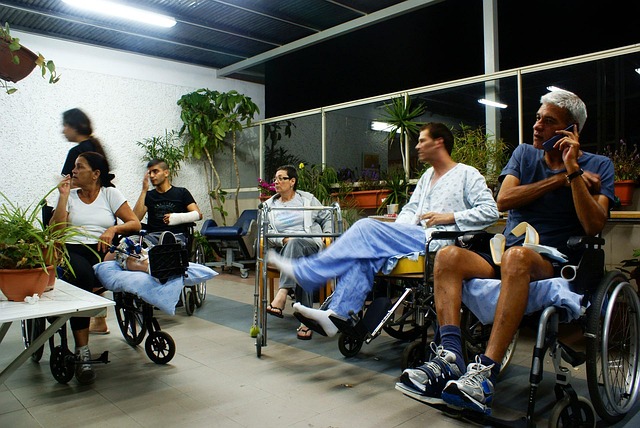Alumni programs for substance abuse recovery are key to sustained sobriety, offering personalized relapse prevention plans that address individual triggers, challenges, and strengths. These tailored strategies incorporate coping mechanisms, stress management, supportive networks, nutrition planning, and ongoing support, significantly improving the likelihood of long-term recovery. Unlike brief treatments, alumni programs provide continuous care, ensuring individuals stay on track post-formal treatment and fostering a community of peers with shared experiences.
Personalized relapse prevention plans (RPPs) are a powerful tool for individuals recovering from substance abuse. By anticipating and managing high-risk situations, these plans empower alumni of treatment programs to maintain long-term recovery. This article explores why personalized RPPs are crucial for alumni success, delving into the key components of effective plans and highlighting the vital role that alumni programs play in sustaining recovery and risk management. Discover how tailored strategies can help navigate challenges and foster a robust support system post-treatment.
- Understanding Relapse Prevention: Why Personalized Plans Are Crucial for Alumni
- Components of an Effective Relapse Prevention Plan
- The Role of Alumni Programs in Sustaining Long-Term Recovery and Risk Management
Understanding Relapse Prevention: Why Personalized Plans Are Crucial for Alumni

Relapse prevention plans are a vital tool in helping individuals maintain their sobriety after completing an alumni program for substance abuse recovery. These personalized strategies go beyond general advice by considering each person’s unique triggers, challenges, and strengths. By understanding that one-size-fits-all approaches often fail to address the complex nature of addiction, alumni programs prioritize tailored plans.
This individualized approach ensures that those in recovery have a comprehensive strategy to navigate high-risk situations. It encompasses various aspects, from identifying personal triggers and developing coping mechanisms to implementing effective stress management techniques and connecting with supportive networks. Moreover, incorporating services like nutrition planning for optimal health recovery and ongoing recovery support can significantly enhance an individual’s ability to sustain sobriety.
Components of an Effective Relapse Prevention Plan

An effective relapse prevention plan for substance abuse recovery is a multifaceted strategy tailored to each individual’s unique needs and experiences. Firstly, it should include a comprehensive assessment of high-risk situations, identifying triggers and potential challenges that could lead to a relapse. This might involve exploring past behaviors, emotional responses, and environmental cues associated with substance use. By understanding these risk factors, individuals can learn to anticipate and prepare for such scenarios.
The plan should also incorporate various components like group counseling sessions, fostering accountability, empathy, and community among peers in recovery, crisis intervention training equipping individuals to recognize emergency situations, and skills training to manage cravings and stress. These elements work together to provide a supportive network and practical tools, enhancing the individual’s ability to resist triggers and maintain long-term addiction recovery. Alumni programs for substance abuse recovery play a vital role here, offering ongoing support and guidance as individuals navigate their personal journeys.
The Role of Alumni Programs in Sustaining Long-Term Recovery and Risk Management

Alumni programs play a pivotal role in sustaining long-term recovery for individuals who have experienced substance abuse. These initiatives serve as a powerful tool for managing risks and supporting ongoing healing. By fostering connections among peers with shared experiences, alumni programs create a sense of community that encourages accountability and reinforces healthy habits. Participants gain access to a network of support, where they can find encouragement, share challenges, and learn from one another’s victories and setbacks.
Incorporating Crisis Intervention Training (CIT) within these programs equips members with the skills to recognize and respond to potential triggers or relapses. The availability of recovery support services, including ongoing guidance and encouragement throughout the recovery journey, further strengthens individuals’ resilience. Unlike Rehabilitation Centers Near Me, which provide short-term treatment, alumni programs offer continuous care, ensuring that those in recovery stay on track even after formal treatment ends. This comprehensive approach not only enhances long-term sustainability but also empowers individuals to navigate high-risk situations with enhanced coping mechanisms and a strong support system.
Personalized relapse prevention plans, tailored to individual needs, are a game-changer in the field of substance abuse recovery. By equipping individuals with the tools to anticipate and navigate high-risk situations, alumni programs for substance abuse recovery can foster long-term sustainability. These plans, combined with supportive alumni networks, empower those in recovery to manage triggers effectively, ensuring a brighter future free from relapse.






